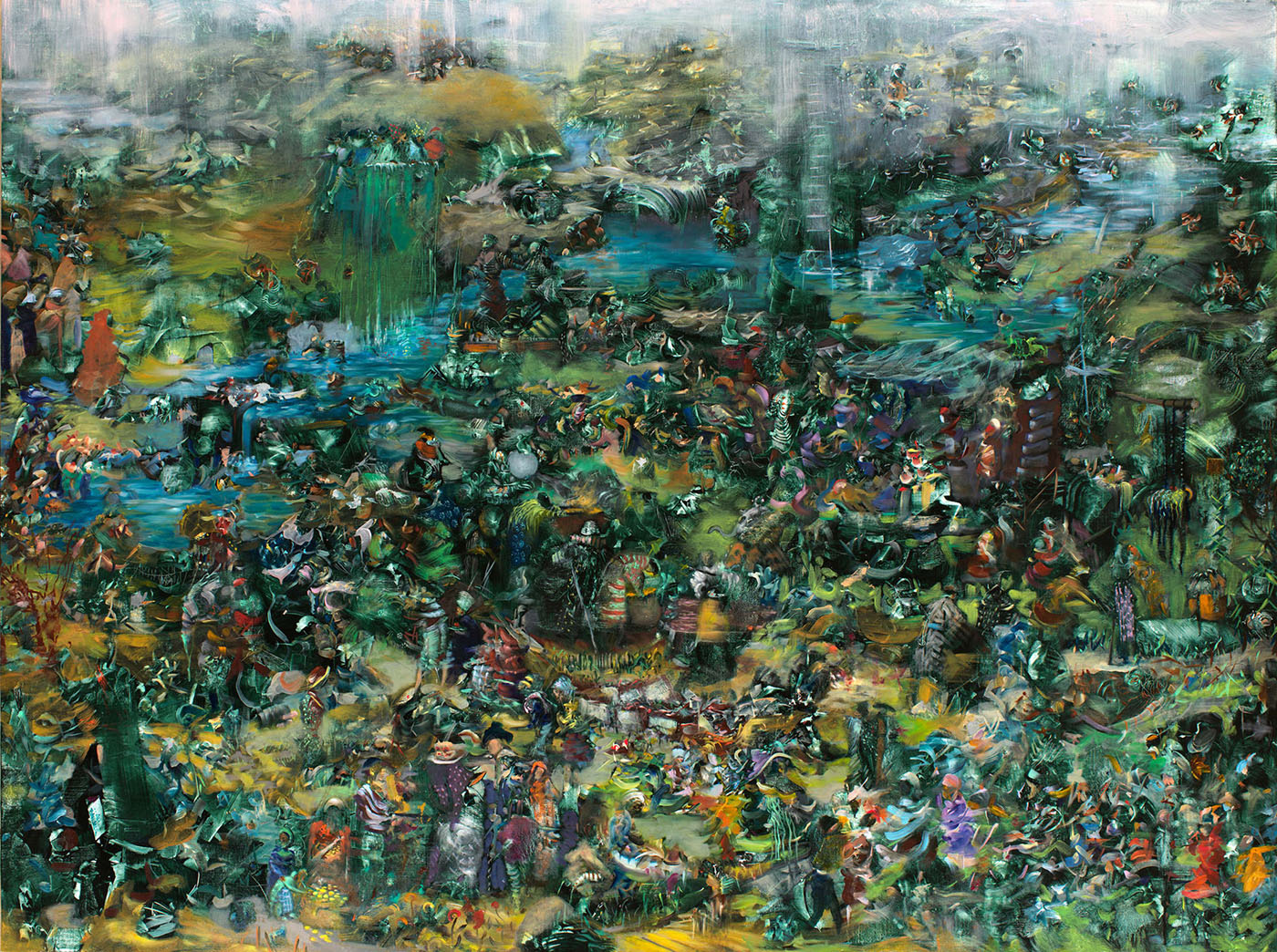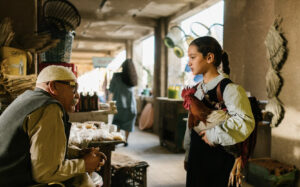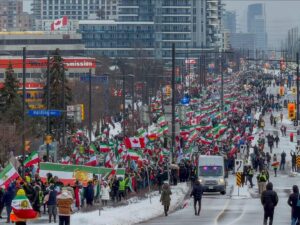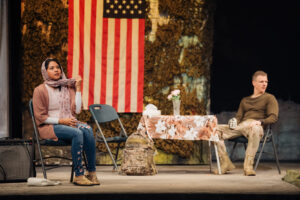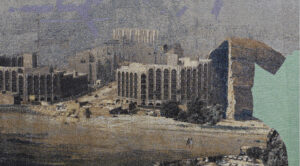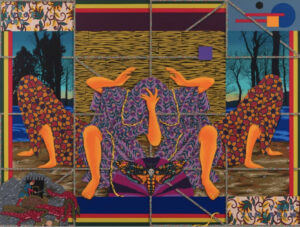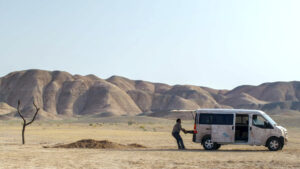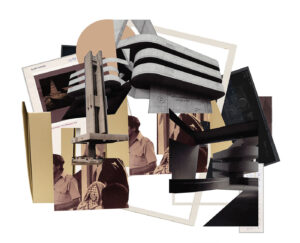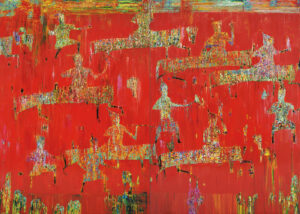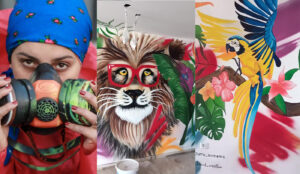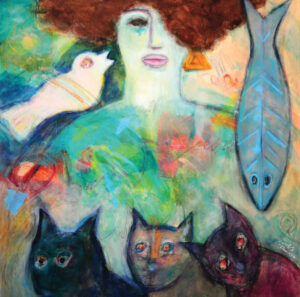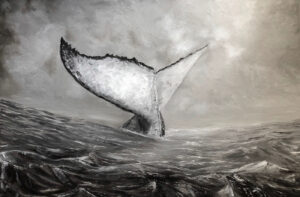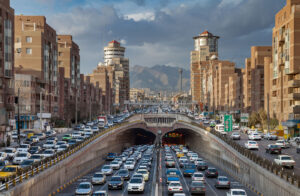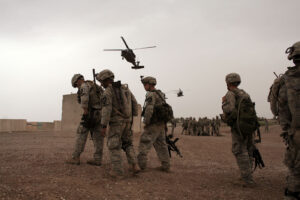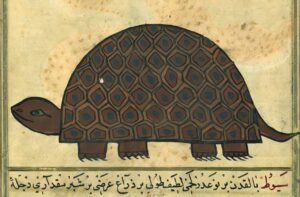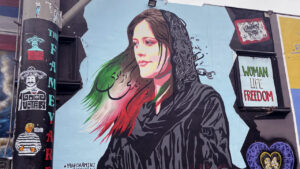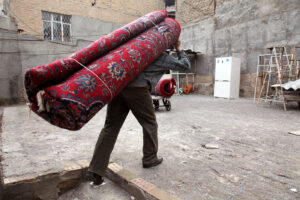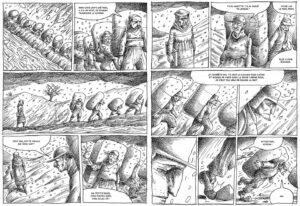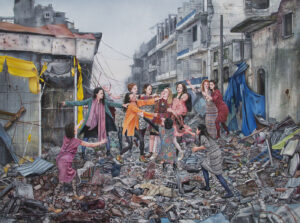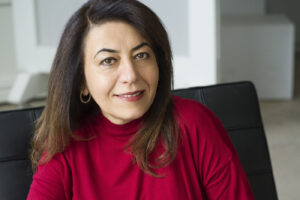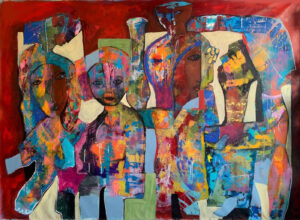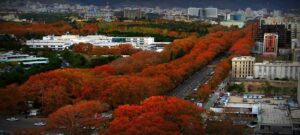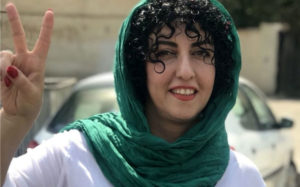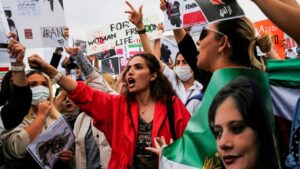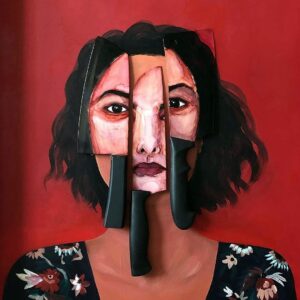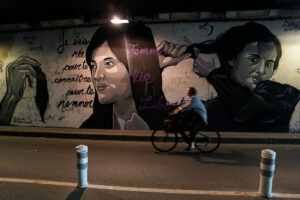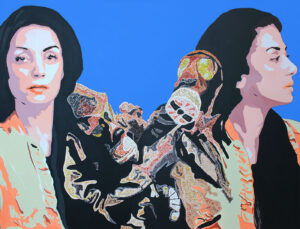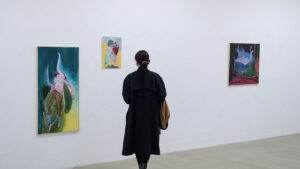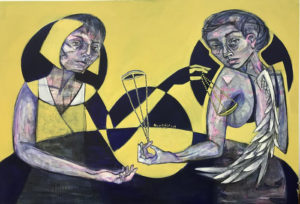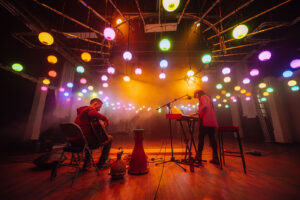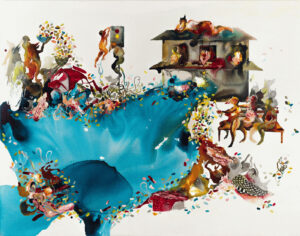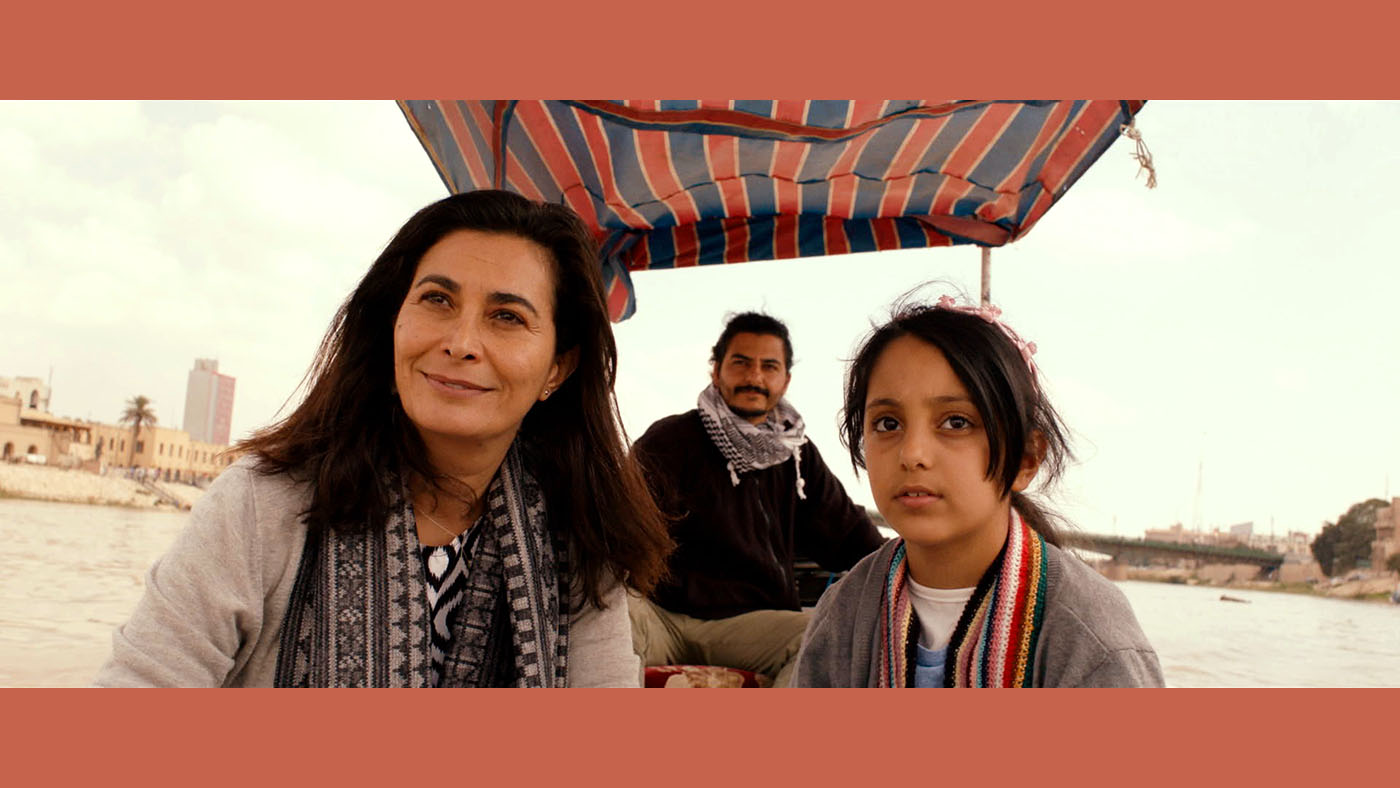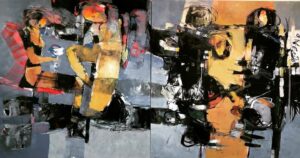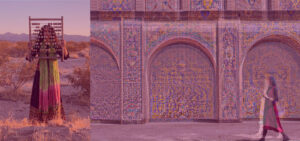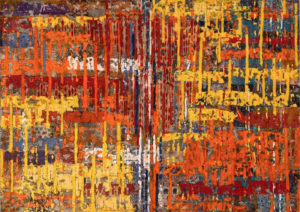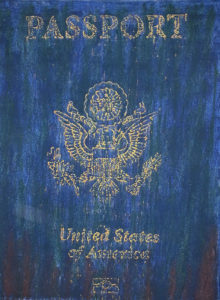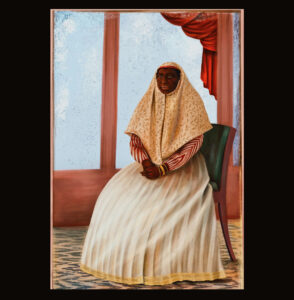Hawra al-Nadawi
Translated from the Arabic by Alice Guthrie
It was Tuesday the ninth of Tir 1388, or rather, in most of the world, Tuesday the thirtieth of June, 2009. I woke up that morning exhausted by one of those nights. I almost forgot the details of what had been happening just before I fell into the deep sleep from which I was now trying, with extreme difficulty, to extricate myself. I was naked and sweaty. Various fermenting body odors were wafting from me and from the bed on which I lay: the combined putrid smell of all the bodily fluids that had soaked the bed so throughly that the sheets were now sticking to my bare skin. Then there was the medium-pretty woman sleeping beside me as if boasting of her neutral sleep to the world after a raucous night. There was something about the scent of her that was reminiscent of olives blended with cinnamon. It seemed this pungent primeval fragrance was an attempt on her part to seduce and arouse — although the reality was that her perfume would become boring immediately one was done with her.
I picked up my phone to check the time, hoping that it was still early enough for me to go back to sleep, but it was already a few minutes past ten, so I jumped straight out of bed. If I didn’t want to miss the demonstration setting out right now from Haft-e-Tir square towards Valiasar Square, I would have to sacrifice my usual fifteen-minute bath, for a start. I did my best to get clean in two minutes flat and hurriedly got my clothes on.
Yesterday Bano had expressed a desire to join me on the march today. But not a strong desire. So I left her sleeping, didn’t say goodbye, just let myself out of the flat, careful not to get spotted by any of the neighbors. The flat belonged to Bano’s family, who lived abroad, and in a rather weird coincidence it was in Koocheh Nader, here in the capital, Tehran — so it was right by the Dr Ali Shariati Museum. Bano’s love for Dr Shariati’s ideas and his writing was an ostentatious love she wore like cultural bling. She showed off about it. But her attempts to brush her one-dimensional personality with even a light dusting of intellectualism were inappropriate and out of place, especially given the body into which this personality of her was squeezed. It was a body daubed in loud colors, from the radiant yellow of her blindingly blonde hair — exactly half of which she would expose from under her garish scarves — right down to the little finishing touches of her colored lenses or the bright orange varnish on her long nails (clashing with her straw-colored skin).
My intuition about what her appearance indicated was not wrong, despite her attempts to appear the opposite of her nature by cramming hackneyed Simin Behbahani and Forough Farrokhzad verses into her lackluster and contradictory arguments. I had quickly guessed that these cultural claims of hers merely reflected her urge to get close to me. This was not because my physical form inspired her, but because faux intellectualism was in fashion: a new accessory for superficial young women of her generation in Tehran. And in fact, the truth is that everything got muddled up. We began finding it hard to spot the young women of that generation who were serious in their intellectual endeavors, whose cultural consciousness stimulated and expanded in an exciting way, who had read literature, politics and history, using the internet to do so — having learnt to crack its code and pass easily into its forbidden worlds, overcoming the strict governmental censorship imposed on websites. All of this activity was born of the girls’ frantic desire to understand the precarious and critical present moment in the puritanical country where they had grown up. Their generation had not experienced anything other than a post-revolutionary Iran, trying to liberate itself as much as possible from the strict rules of that revolution.
But Bano, as had been clear to me from the very beginning, was not one of those young women. She had been eager to abandon the role she was playing when she took off her first piece of clothing, and had then freed herself completely from the pretense of being cultured after our first intense sex session.
The flat in which Bano and I grew accustomed to meeting had belonged to her upper class family since before the revolution. The owners of the residential flats in this area were mainly older folk. Some of them, like her relations, had even lived there for four or five decades. Bano’s grandfather, the head of her family, had migrated to Germany directly after the revolution. He had left his flat to those of his children who remained in the country, who had passed it on down to his grandchildren, until eventually I arrived to sleep there with his horny granddaughter.
Given that I was late, I thought that instead of joining the demonstrators in Haft-e-Tir Square, I would catch up with them where the march was heading, in Valiasr Square. So I set off down Dr Fatemi Street, along the side of Laleh Park, hoping to find a shortcut. I was demonstrating on my own as I walked through the streets of Tehran, a green cloth tied around my head and another around my wrist. Ever since the start of the elections and the fevered events that followed, people had been divided into either sebz — green — or any other color or thing that wasn’t green. Thus as I walked along the street I would hear the two sides of this division both shouting at me. One side was expressing their indignation, making very clear their opinion that people like us were intent on ruining the country. Some of them would even freestyle on this idea in a quick speech. This would invariably emphasize our having ruined the reputation of the great two-thousand-year-old empire, and would be verbally and visually full of a weird mixture of ethnic fanaticism and politio-religious affiliation. The other side glorified our desire for change and reform and freedom, and supported us for it. None of my siblings had encouraged my involvement in mobilizing for change, either before the elections or in the subsequent events and demonstrations. They had all expressed their anxiety about me, and their relative indifference to the political situation in this country compared to their concern for my safety. On the phone Louay said to me, in the Arabic he had kept up so well in exile:
— What’s this you’ve you got yourself mixed up in? It’s not like it’s our own country, for you to be trying to sort it out or change it. What’s it even got to do with you?
I answered him in Kurdish:
— And is the place that booted you out when you were off your guard still your country, then?
But Louay was insistent:
— Neither Iraqis nor Iranians respect humanity. If you don’t like the situation there then work out a way to get out, and come join me over here.
This was not the first time that Louay had tried to persuade me to leave this country, and everyone in it, behind. He had been totally convinced about migrating from the place I had arrived in at the age of four, deported from Iraq when our family was banished on the pretext of our having Iranian heritage. I was born in Baghdad in 1354, I mean 1976, the youngest of five boys. My real name was Akram. When I told Bano this she smiled, looking lustfully at me. Without marvelling at the rest of my gripping story at all she simply said, in her calm tone, her voice humming with its usual white-noise resonance:
— Ey vaaay … But if only you’d kept your name. You would’ve been much sexier with a woman’s name.
I was not responsible for choosing my new name at the age of four. Whether I kept my original name or changed it was no longer important once each of the two names had acquired a share of me — especially given that I did not have a preference for either. Also, manipulating our names in this way was something my father did, for which I forgave him — just one more of the many missteps he took as a father and that I got over, unlike my brothers, who nurtured bitter grudges towards him. I grew up without a true sense of that sudden huge change that had occurred in our life, on account of how young I was when it happened. I grew up with two names, and two languages, and two cultures, and I even bore the animosity between the two countries in my heart in a hybrid way. I made excuses for both countries together, I got angry with both of them together, and then in the end I forsook them both, when I finally worked out that resentment would not bring me anything other than disappointments and pain.
Between my brothers and my mother, who all spoke the Baghdadi Arabic dialect, and my father, who deliberately maintained his Kurdish mountain accent, I grew up speaking Arabic and Kurdish at the same time, plus of course Farsi. Perhaps there was a trace of a Kurdish accent in my Arabic pronunciation. But I certainly was steeped in the authentic flavors of the Iraqi vernacular and all it carried with it — from sardonic humor to the nuances of obscure slang terms, all sneaked into this country by my brothers, hidden away inside their chests like caged birds with no intention of escaping. Among us all I was the most accepting of our reality, a reality that caused the rest of them to suffer greatly.



